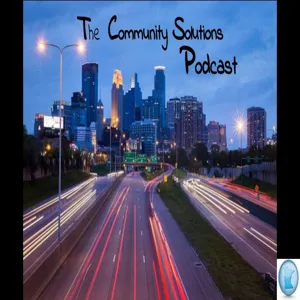Podcast Summary
Interesting Smaller Sections in the Infrastructure Bill: The infrastructure bill includes $350 million for wildlife crossings, a study on crash test dummies, and initiatives to boost female representation in the trucking industry, alongside large-scale projects for roads, bridges, and transportation.
The recently passed infrastructure bill is extensive, totaling 1,039 pages and covering a wide range of projects. Our NPR colleague Kelsey Snell, who had already started reading it, highlighted some intriguing smaller sections. These include $350 million over five years for wildlife crossings on highways, a study on improving crash test dummies to better reflect different body types, ages, and sexes, and efforts to increase the representation of women in the trucking workforce. While these are just a few examples, the bill primarily focuses on the large-scale infrastructure projects that facilitate the movement of goods, services, and people across the country, such as roads, bridges, rail, transit, airports, ports, and their expansion and safety.
Investing $1.2 trillion into infrastructure and repairing roads and bridges with $110 billion: The Infrastructure Investment and Jobs Act allocates $110 billion towards road and bridge repairs, addressing critical issues like the second-worst bottleneck at the Brent Spence Bridge in Cincinnati, Ohio, and improving overall infrastructure conditions.
The United States is investing $1.2 trillion into infrastructure through the Infrastructure Investment and Jobs Act. This spending is significant and comparable to the public work spending during the New Deal era. A portion of this funding, $110 billion, will be allocated towards repairing roads and bridges. The Brent Spence Bridge in Cincinnati, Ohio, serves as a symbol of the critical need for infrastructure repairs. With no shoulders and tight lanes, this bridge, which handles about $1 billion worth of goods daily, has become the second-worst bottleneck in the country. Despite being structurally stable, accidents on the bridge can cause major traffic jams due to its limited capacity. The infrastructure bill aims to address issues like these and improve the overall condition of the country's infrastructure.
Maintaining and upgrading infrastructure comes with a high cost: The cost to address infrastructure needs, such as rundown bridges and orphaned oil and gas wells, exceeds current funding.
Infrastructure, such as the Brent Spence Bridge, plays a significant role in connecting communities and moving goods and people across the nation. However, maintaining and upgrading this infrastructure comes with a hefty price tag. For instance, the estimated cost to address the backlog of rundown bridges in the United States is much higher than the allocated funding in the current infrastructure bill. Similarly, orphaned oil and gas wells, which are the responsibility of their owners to plug and cap, can pose environmental hazards when left uncapped. Thousands of these orphaned wells exist around the country, and identifying and addressing them is a challenge. While the Brent Spence Bridge and orphaned wells are distinct issues, they both highlight the importance and the financial demands of maintaining and upgrading our nation's infrastructure.
Infrastructure Bill: Addressing Orphaned Oil Wells and Airport Improvements: The infrastructure bill allocates $4.7B for plugging orphaned oil and gas wells, but it's not enough to cover all affected wells. Simultaneously, it includes $25B for airport improvements to boost capacity and better serve communities.
The infrastructure bill provides $4.7 billion to address the issue of plugging orphaned oil and gas wells, but this amount falls short of fully addressing the problem as it only covers approximately 62,000 wells, leaving thousands more unplugged. Meanwhile, at Thief River Falls Regional Airport in Minnesota, airport manager Joe Hedrick manages a staff of five and handles various tasks from dealing with politicians to plowing the runway himself. The airport, which serves a community heavily reliant on DigiKey Electronics, is seeking a runway extension to accommodate larger cargo jets and maximize their carrying capacity. The infrastructure bill also includes $25 billion for airport improvements, which could significantly benefit regional airports like Thief River Falls. The bill aims to keep economic pathways moving and goods shipping by investing in infrastructure, with companies providing jobs and paying taxes being a significant part of the equation.
Discussing the Impact of Infrastructure Projects on American Capacity and Connectivity: Airport runway extensions could increase cargo jet capacity by 25%, broadband internet expansion aims to connect the unconnected, and infrastructure investments are crucial for improving overall quality of life in the US.
There are significant investments being made in various infrastructure projects, such as airports and broadband internet, with the goal of improving capacity and connectivity for Americans. Joe, an airport executive, discussed the potential impact of a runway extension, which could add approximately 25% capacity to cargo jets and cost tens of millions of dollars. Meanwhile, broadband internet was highlighted as a major issue, with a goal to connect those with slow or no internet to fast and reliable service. Christopher Ali, a media studies professor, shared his experiences researching rural broadband and the frustration expressed by individuals in various communities regarding their local broadband services. These infrastructure projects reflect the government's commitment to addressing these challenges and improving the overall quality of life for Americans.
Historic $65 billion investment in broadband internet: The Infrastructure Bill invests $65 billion in broadband internet, the largest public investment in telecoms, aiming to tackle the digital divide and upgrade infrastructure.
The Infrastructure Bill includes a historic $65 billion investment in broadband internet. This is the largest public investment in telecommunications in the country's history, recognizing that good, fast internet is now as essential as roads, bridges, and airports for fully participating in modern life. The bill aims to tackle the digital divide in rural areas, tribal communities, and low-income neighborhoods. While $65 billion is a significant amount, it may not be enough to fully future-proof our internet infrastructure or provide holographic connectivity. However, it is a crucial step forward in addressing the digital divide and upgrading our internet infrastructure. If you have any specific questions or areas of interest regarding the bill, feel free to reach out to us at PlanetMoney@npr.org.




